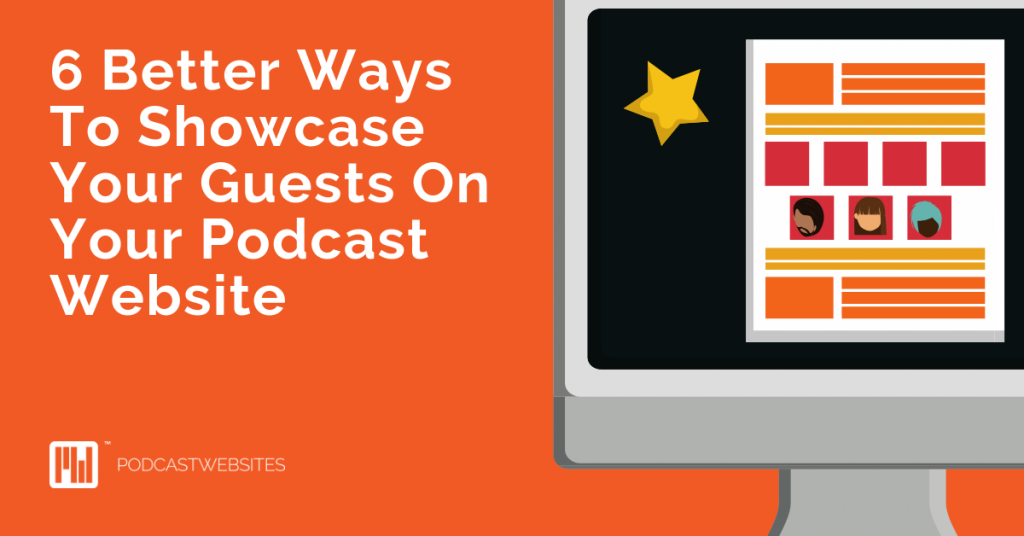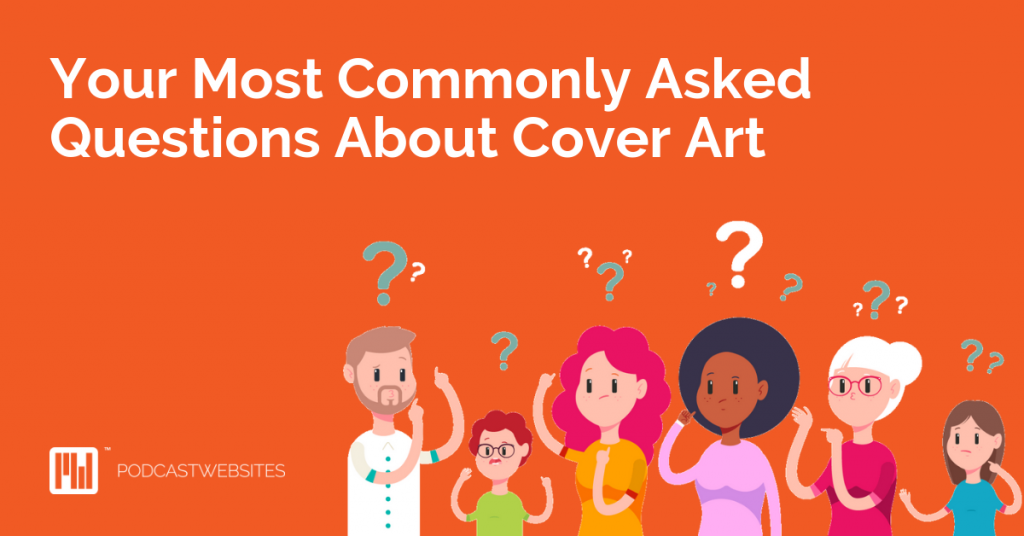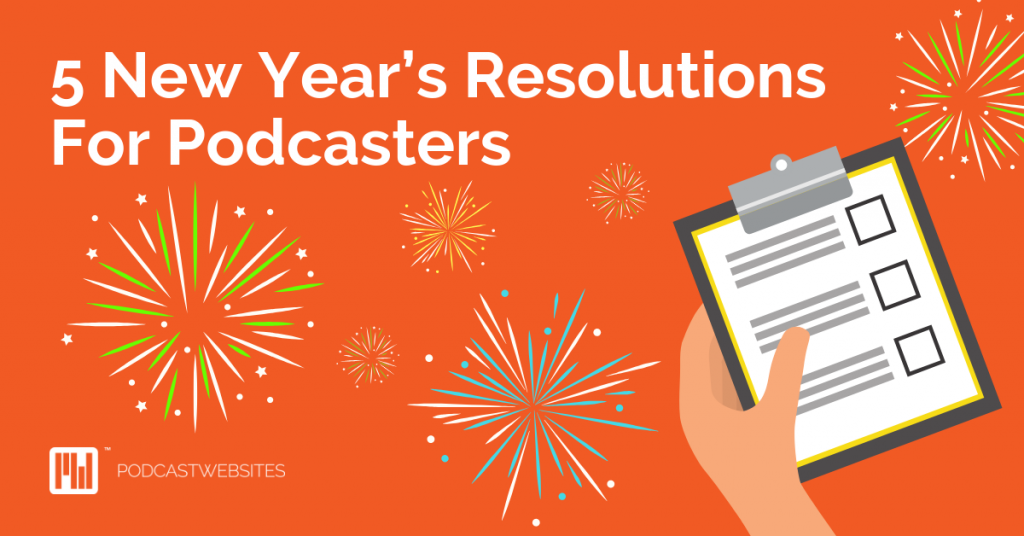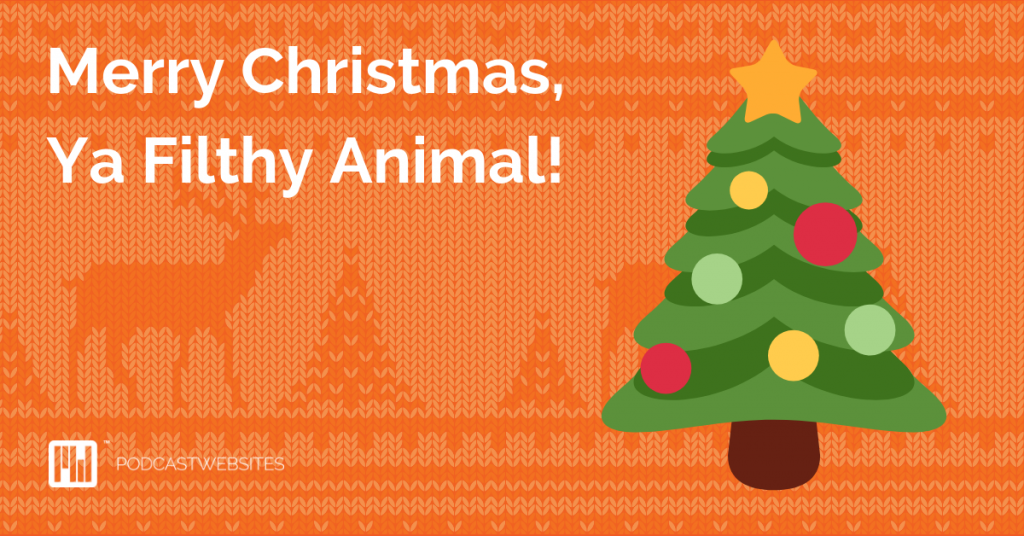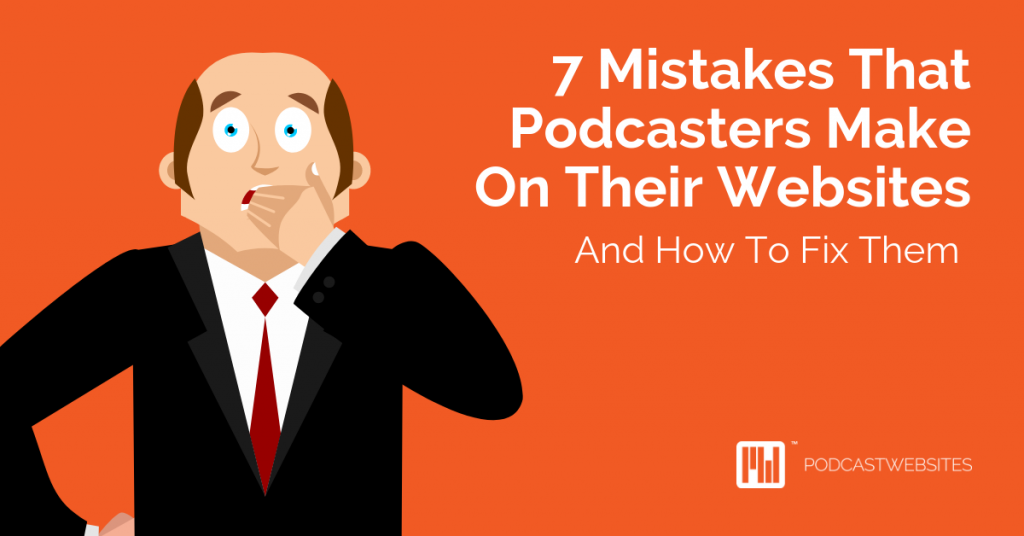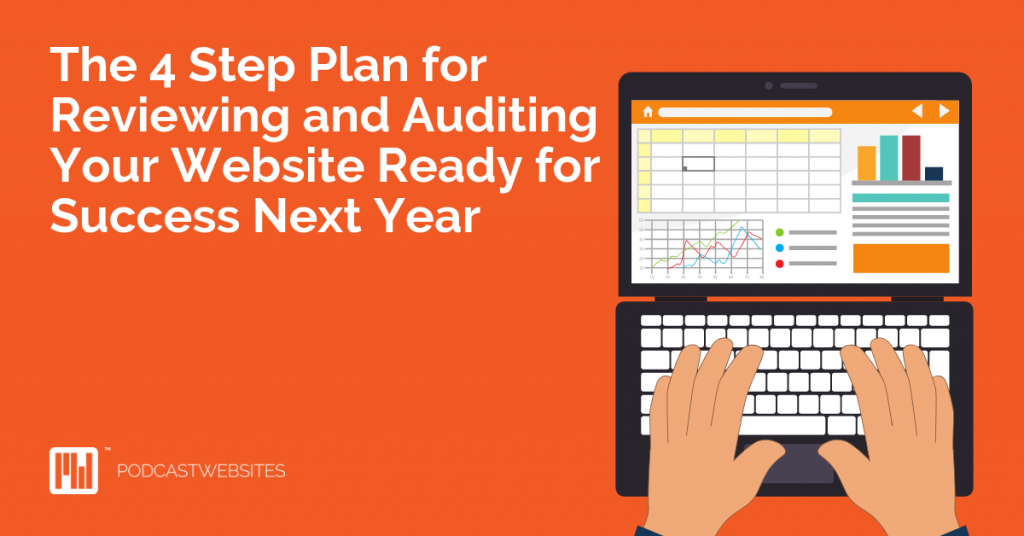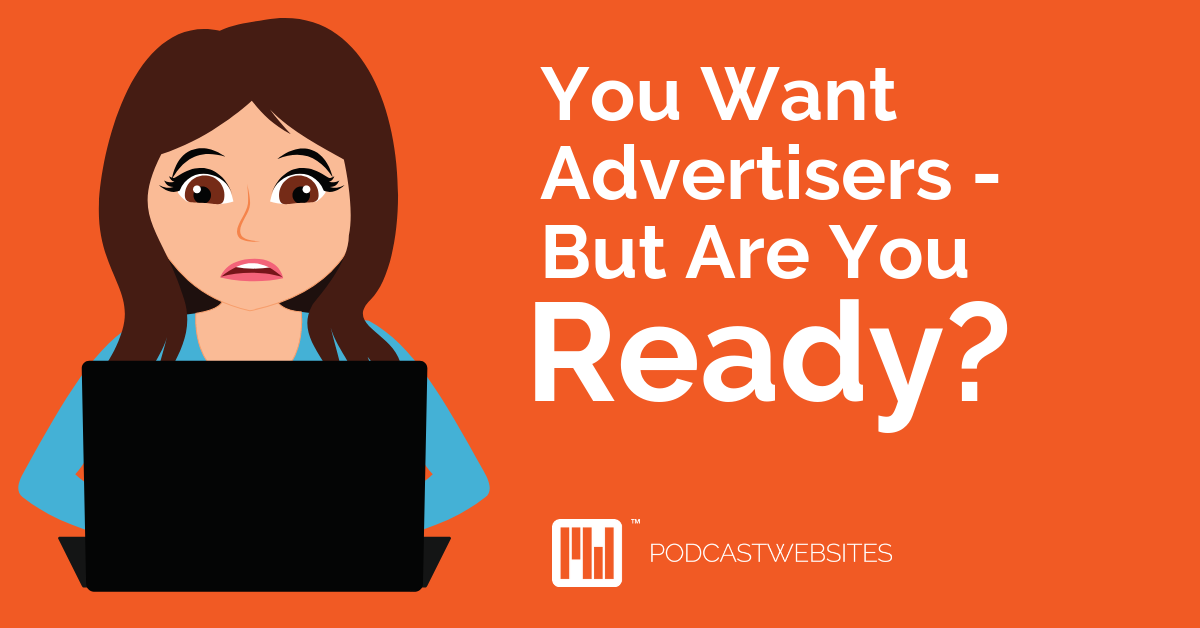
You Want Advertisers – But Are You Ready?
The minute some podcasters turn on the mic for the first time, they are ready to get paid to podcast and want to get that first podcast sponsor. They’re in it to win it, they want to podcast for a living, and they’re willing to do what it takes to make this a full time business as well as the best time they have all week.
Others are more hesitant. They know that podcasting can be expensive, and they’d really just like to find a way to have their hobby funded. Or maybe they want to start monetizing a growing and healthy crowd of listeners, but they’re afraid the audience will walk once they turn their podcast into an infomercial.
Regardless of which one you are, you’ve seen the potential income that some podcasters make from sponsorships and advertising and want to know if that avenue is for you.
Let’s take a look at your show and your online setup and see if you’re prepared and have what you need to welcome sponsors and advertisers into your life.
These things are really the pre-steps before you start wondering what to charge, and they’re vital for your success down the line.
Community – Do you have one?
You don’t need 5,000 downloads per episode, that’s one thing for sure. However, you will need an audience of some kind, even if they haven’t caught on to the podcasting thing quite yet. Lots of podcasters start their show after having grown an audience of followers on other channels for the past 8 years, and advertisers want to get to those people just as much as the listeners of the podcast.
Even if you were a little late to the social media and online audience party, you still could have a decent audience built up. It doesn’t take 8 years to grow an audience. In fact, you could have built up a decent-sized following in the short time your podcast has been live, if you’re set up correctly. Let’s take a look.
You should have at least one social media channel with a healthy amount of friends/followers and good conversations going. Just one will do the trick. Your personal Facebook profile, Twitter account, Pinterest, Instagram, anything you’ve built up. If you have one in the thousands, great. If you have a few hundred spread across a few of those channels, that’s good too. The more people the better.
It’s also helpful to have started an email list of people who like you and/or your show. Maybe they don’t listen to your show, but they’ve given you their email for different reasons and you have permission to market to them (aka send them emails via an email management system.)
Why do you need this?
Ad buyers and sponsors are looking for a person with a significant circle of influence. If you say buy these shoes, for example, they’d like people to trust you and take your word for it and buy the shoes. The more people you’re connected to, the more able you are to put your opinion out there on a product or service and have people act on it, or at least be curious enough to check it out. That’s what they want – exposure to the right people and the more, the better.
Don’t have this?
Here are some things you can do to jumpstart your community:
- Ask your listeners to friend and follow you on your social media channel of choice.
- Let them know that you’ve got a free download or a freebie of some kind on your website.
- Start connecting with people immediately on a social media channel. Don’t wait!
- Even people who don’t seem relevant, or who are personal acquaintances will be able to tell people about what great stuff you’ve got going on. Separating your personal and podcast stuff is a waste of friends and family.
Branding – Have you focused on it?
Depending on the level of sponsor you’re trying to acquire, it’s helpful if your online brand is polished. That doesn’t necessarily mean you have to hire a designer and spend $10,000. But when you’re creating a media kit, you’re inviting people to investigate you and your online world, and if that world looks in any way….abandoned, it may hurt your chances at a partnership.
Having good branding doesn’t mean you’re spending a lot of money. On a very basic level, it means you’re using the same colors and fonts consistently across all your social media channels and your website. It means that you’re spelling and punctuating correctly. It means you’re taking care towards how you’re presenting yourself and your podcast, and that’s important.
Voice is important too. If you’ve got a comedy podcast, it might be weird to have a more corporate-looking site. If you’ve got a business podcast, it would be odd to see crazy fonts and colors on your website. Branding needs to be consistent in order for listeners, users and yes, advertisers to feel comfortable.
Why do you need this?
In order to explain the importance of this, I’d like to use an example. We all notice when national brands change their logo, right? When McDonald’s went from the brown hut with the orange seats to the slick white outsides and the white booth insides? Imagine that you’re dying for McDonald’s and you use your GPS to find the closest one. But the outside is blue, the logo is in orange, it’s a completely different font than what it looks like on the commercial and their menu is in cursive.
Wouldn’t you wonder if you were in the right place? Would you worry that the owner of this particular McDonald’s was maybe ripping off the main company instead? Would you trust that you’d get the food you’ve come to expect? I don’t know about you but I’d think twice about eating there.
The same thing is true with your branding. Whether print or online, people come to expect something from you and delivering it in a polished, professional, and most importantly, CONSISTENT way is vital to sealing a deal with a sponsor or advertiser. After all, you’re representing them now in your partnership, and they want to look smart for creating a connection with your brand.
Don’t have this?
Here are some things you can do to help your branding consistency:
- Make sure all your fonts are the same everywhere. Don’t experiment with fonts. If they’re not consistent, recreate the elements that deviate with a free service like Canva.com.
- If you haven’t yet, choose a font from Canva or Google Fonts so that ANYONE with a computer can help you create graphics and help you with this as you grow. Being fancy with fonts can be fun but it isn’t helping your brand consistency.
- Maybe you’re consistent with your brand but haven’t put ANY graphics up on your social media channels or your website is exactly like the template you purchased.
- If you don’t want to spend bucks on a designer and you don’t want to do it yourself, you could try services like Fiverr.com or Upwork.com. (formerly ODesk.com) Just be persistent about the service you’re getting and don’t settle for anything you don’t feel represents you well. Keep sending the pieces back until you’re happy.
Haven’t even THOUGHT about a brand yet? A quick start to getting a brand is to choose 2 fonts you like on Google Fonts, and a color palette from design-seeds.com and BOOM there’s your visual brand. As long as you stick with those colors and fonts for EVERYTHING, your graphics will look like a nice polished brand. For voice, just make sure you write your tagline and intro and other materials as YOURSELF and don’t try to be something you’re not. Be funny if you’re funny. Be serious if you’re serious. Be smart if you’re smart and if you’re not smart….well, at least try to be funny. (ha ha)
Organization – Are you a well-oiled machine?
Now that we’ve established that we are DIY-ing this whole advertiser and sponsor thing, it’s best that you know what it takes to manage it all now. Being an audio influencer can be complicated, because you are delivering a multitude of things across several platforms. Staying organized is going to be the difference between continued success with your partnerships and people pulling out of contracts on you at the last minute.
If you haven’t noticed already, creating a podcast with any kind of regularity can be complicated. There are a lot of pieces flying around at the same time (and some you may not bother with because it’s too….complicated.) The website, the podcast host, the show notes, the episode graphic, the website and social media promotion, the email to the audience, and let’s not even get into what you’re managing if you have an interview show, right?
Accepting advertisers and sponsors does not make things easier. You have lots of options – offering space in the podcast, on the website, on social media, during live events, in our emails, or whatever combination of those you feel comfortable with. Managing even more pieces requires organizational skills.
Being organized means:
- You schedule your podcast, social media promo, and email before the go-live date.
- You have a system for your guest management, so you don’t have to grab their bio and headshot last minute either before the episode or before it goes live.
- You have a system for handling feedback from your listeners, or if you don’t, you’re still able to respond to them within 24-48 hours of their contact with you.
- You have a team in place to handle any of the above tasks.
Why do you need this?
When you get advertisers and you’re doing everything yourself, you’ll need to be able to manage several aspects of the process.
There’s the administrative process, accepting payments on time and having contracts signed.
Advertising creation – regardless of whether you or your partners are creating the spots, (and you creating them is a whole other thing to manage,) you’ll have to manage making sure you have what you need for each episode and each week.
There’s the advertising execution – making sure the right ads are inserted into the right spot on your show, on your website, and that the promised amount of promotion is delivered.
Delivering performance indicators – letting your advertisers and sponsors know how well their ads did and how you’d recommend they tweak or move forward based on the response they’ve gotten so far.
Satisfaction and renewal – you’ll need to keep track of when the contracts are up and check in with your advertisers to see if they’ll be moving forward or ending the relationship.
Don’t have this?
You may not have ALL of the above aspects of your podcast in a state of organizational perfection, and that’s ok. But if you don’t have systems in place yet, this is probably because you’re doing everything yourself and you either don’t want to hand it off or you don’t know how, or you’re totally overwhelmed. Either way, you can get organized with these baby steps:
- Schedule in your calendar, in advance, when you’ll be uploading the show, promoting it, or sending emails about it. Stick to this schedule and be rigid.
- Use a booking system to schedule and collect information for your guests. Schedule Once even takes care of thanking them with a follow up email!
- Hand off one tiny part of it to someone who maybe you don’t trust yet, but you’re willing to give a shot. Let someone else write the show notes, schedule the social media, create the graphics with a template you provide, anything to take one of the pieces off your plate. When you’re cool with that, give them or someone else another piece. Piece by piece until you can handle taking on the extra tasks sponsorships and advertisers require of you.
Many of you have started your podcasts with all three of these things in tip-top shape – and if that’s true, then congrats! You’re 100% ready to go out there and land your first sponsor!
If you’re someone who has most of the things above pretty nailed down but need to check or try out a few things, go for it! You can start to get your materials ready for your media kit while you work on putting systems in place, growing your community or tightening up your branding. You’re almost there! It won’t be long before you’re ready to get out there and sell, and you could even start to research and reach out now if you’ve got confidence in what you DO have and you’ll have everything in place by the time the first contract is signed.
If you’re still working on the above aspects of community, branding or organization, have no fear! These pieces are a cinch to fix and while important, are not impossible mountains to climb. Building your community can take time, yes – but with focus and dedication, will grow as long as your passion and enthusiasm can reach the right people, as many of them as you can and as fast as you can.
Your branding may be a mess – but by making a few small font and color changes, or by straightening up your copy, you could be ready to go very shortly. Finally, putting systems in place is going to help you manage your podcast whether you land sponsors or not – so find ways that you can streamline your process and free up your own time so you can pursue making money with your podcast!
Let’s see where you are in the mix! Log into the Podcast Success Academy on the free tier and take the quiz! Maybe you are way past ready – or jumping the gun. Take the quiz now!
Ready to monetize your audience & become an audio influencer?
Podcasters all across the world are transforming from simply producing audio to becoming a monetised, influential brand with Podcast Websites. When you're ready to become an audio influencer in your niche, we're here for you.
Ready to monetize your audience & become an audio influencer?
Podcasters all across the world are transforming from simply producing audio to becoming a monetised, influential brand with Podcast Websites. When you're ready to become an audio influencer in your niche, we're here for you.

